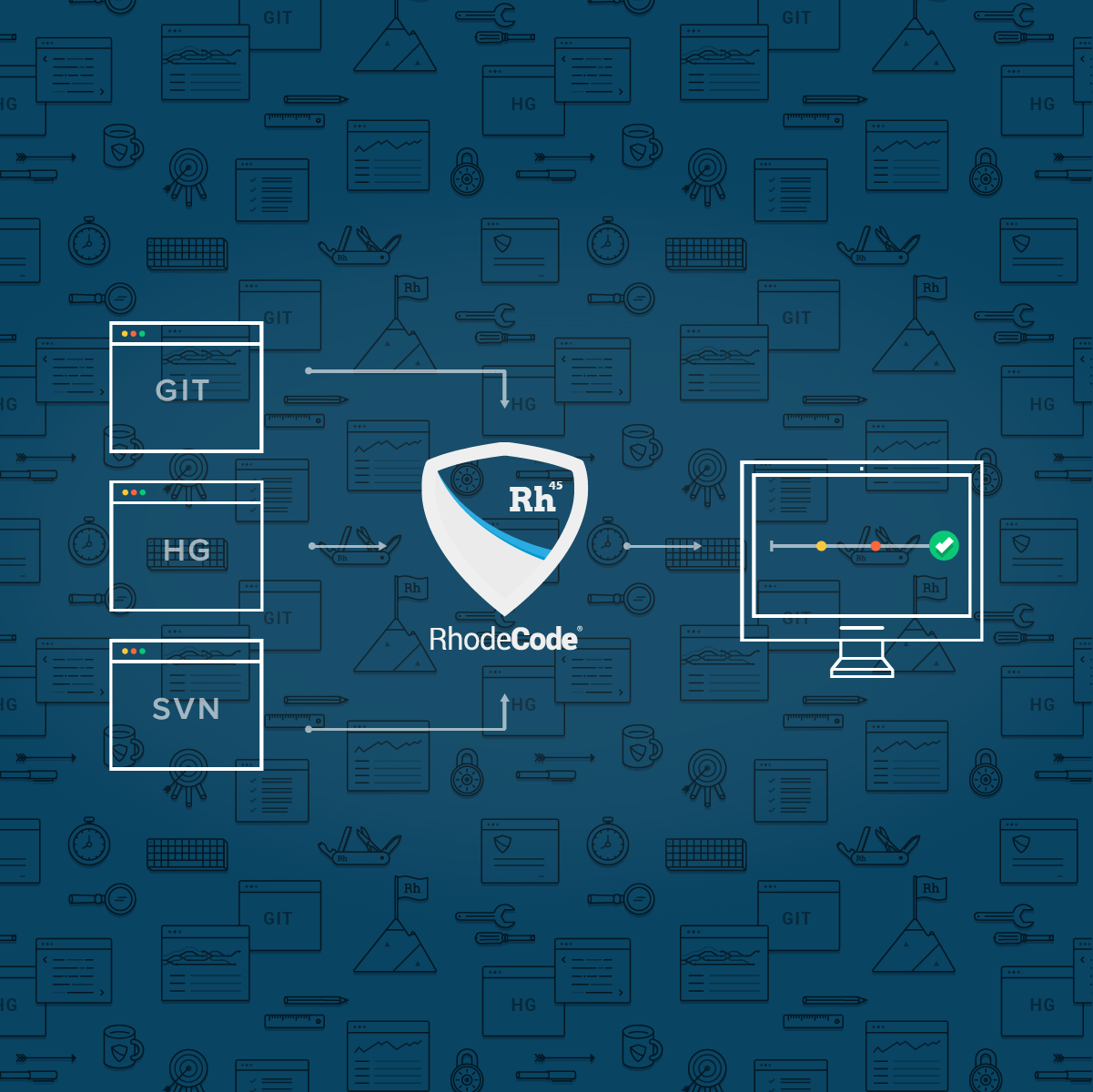Overview
Discover what makes RhodeCode powerful
RhodeCode is a self‑hosted, enterprise‑grade source‑control platform that unifies Mercurial, Git, and Subversion repositories under a single web interface. From a developer’s standpoint it functions as both a **repository manager** and a **continuous‑integration companion**, providing fine‑grained permission controls, audit trails, and automated code‑review workflows. The core idea is to give teams a single point of truth for all their source assets while still allowing legacy VCSs to coexist without migration.
Unified Repository Interface
Code Review Engine
Permission & Role Management
Webhooks & CI Hooks
Overview
RhodeCode is a self‑hosted, enterprise‑grade source‑control platform that unifies Mercurial, Git, and Subversion repositories under a single web interface. From a developer’s standpoint it functions as both a repository manager and a continuous‑integration companion, providing fine‑grained permission controls, audit trails, and automated code‑review workflows. The core idea is to give teams a single point of truth for all their source assets while still allowing legacy VCSs to coexist without migration.
Technical Stack & Architecture
RhodeCode is written in Python 3 and built on the Django web framework, leveraging Django’s ORM for database abstraction. The application uses a relational backend (PostgreSQL or MySQL) to store metadata, permission graphs, and audit logs. Repositories themselves are stored on the filesystem or in a dedicated storage service; each VCS engine (Mercurial, Git, Subversion) is accessed through its native command‑line client via the subprocess module. This design keeps the core lightweight while delegating heavy‑lifting to mature, well‑optimized VCS binaries. The UI is a single‑page application powered by React (or Vue in newer releases) that communicates with Django through a RESTful API layer.
Core Capabilities & APIs
- Unified Repository Interface: CRUD operations for Git, Mercurial, and Subversion repositories through a common REST API (
/api/v1/repos/). - Code Review Engine: Pull‑request and merge request workflows, comment threads, diff views, and review status APIs (
/api/v1/reviews/). - Permission & Role Management: Granular ACLs exposed via the API (
/api/v1/users/{id}/permissions/). - Webhooks & CI Hooks: HTTP callbacks for push, pull‑request events, and custom webhook endpoints (
/api/v1/webhooks/). - Audit & Compliance: Immutable logs of all changes, exportable to CSV or JSON for compliance reporting.
- Plugin System: A Python‑based plugin API that allows developers to hook into repository events, extend the UI, or add new endpoints.
The SDK is documented in the official docs and includes client libraries for Python, Node.js, and Ruby, making it straightforward to integrate RhodeCode into existing CI/CD pipelines or custom tooling.
Deployment & Infrastructure
RhodeCode can be deployed on any Linux distribution that supports Python 3.5+. It ships with a Docker Compose configuration for quick prototyping and a Helm chart for Kubernetes deployments. For production, the recommended stack is:
- Web tier: Django behind Nginx or Apache (reverse proxy).
- Database tier: PostgreSQL 10+ with proper replication.
- Storage tier: NFS or object storage (S3‑compatible) for repository data.
- Background workers: Celery workers for long‑running tasks (e.g., diff generation, notification dispatch).
Horizontal scaling is achieved by running multiple web workers behind a load balancer; the database and storage layers are shared. The application is stateless beyond session cookies, making it amenable to container orchestration and blue‑green deployments.
Integration & Extensibility
RhodeCode exposes a RESTful API for every major operation, allowing developers to automate repository provisioning, trigger code reviews, or fetch audit logs programmatically. The plugin framework supports both server‑side and client‑side extensions; developers can write custom middleware that listens to VCS hooks or enrich the UI with new tabs. Webhooks are first‑class, enabling integration with Jira, Slack, Jenkins, or any custom CI system. The platform also supports OAuth2 and LDAP authentication, making it easy to embed into existing enterprise identity solutions.
Developer Experience
The documentation is structured around core concepts (repositories, permissions, reviews) and includes detailed API references with example payloads. The community is active on GitHub and a dedicated mailing list, providing quick responses to bug reports or feature requests. Configuration is largely driven by Django settings and a config.yml file, allowing developers to tweak performance knobs (e.g., worker pool size) without touching code. The open‑source license (GPLv3) ensures that companies can run it in private data centers without licensing fees, while the enterprise edition adds premium plugins and support.
Use Cases
- Enterprise Code Governance: Centralized control of multiple VCS types with strict audit trails for regulated industries (defense, finance).
- Legacy Migration: Companies that still maintain Subversion or Mercurial repositories can keep them alongside Git without migration pain.
- Custom CI/CD Pipelines: Integrate RhodeCode’s webhooks with internal build systems to trigger automated tests or deployments.
- Self‑Hosted DevOps: Teams that require a fully on‑prem solution for security or compliance can run RhodeCode behind their firewall with minimal infrastructure overhead.
Advantages
RhodeCode offers performance through native VCS binaries, flexibility with a robust plugin API, and security via fine‑grained permissions and audit logs. Unlike cloud‑only services, it runs entirely on premises, giving developers full control over data residency and compliance. Its open‑source core removes cost barriers, while the enterprise edition provides advanced features for large teams. The unified interface reduces cognitive load for developers who otherwise juggle multiple repository managers, leading to faster onboarding and fewer integration headaches.
Open SourceReady to get started?
Join the community and start self-hosting RhodeCode today
Related Apps in development-tools
Hoppscotch
Fast, lightweight API development tool
code-server
Self-hosted development-tools
AppFlowy
AI-powered workspace for notes, projects, and wikis
Appwrite
All-in-one backend platform for modern apps
PocketBase
Lightweight Go backend in a single file
Gitea
Fast, lightweight self-hosted Git platform
Weekly Views
Repository Health
Information
Tags
Explore More Apps
Ryot
All‑in‑one self‑hosted tracker for media and fitness
Galene
Self-hosted WebRTC videoconferencing server
HyperSwitch
Composable open‑source payments infrastructure
Maloja
Track your music listening history, no frills
RERO ILS
Modern open‑source library management for heritage, public and school libraries
Accent
Developer‑oriented translation tool for seamless collaboration

